Search Images
Browse Content (p. 1559)
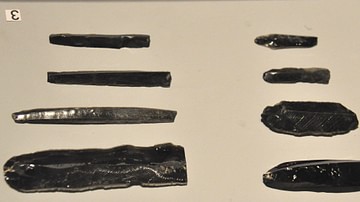
Image
Obsidian Tools
These tool were probably used for cutting and chopping. Obsidian is a naturally occurring volcanic glass and is not local to Mesopotamia. It was most likely imported from modern Afghanistan. These tools were found at Tell Shemshara (modern...
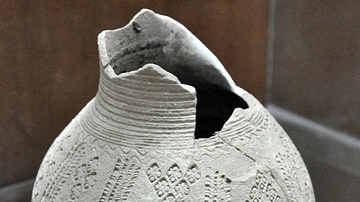
Image
Pottery Jar from Hellenistic period
This partially broken jar dates back to the Hellenistic period, 323-30 BCE. From Mesopotamia, Iraq. (The Sulaimaniya Museum, Iraq).
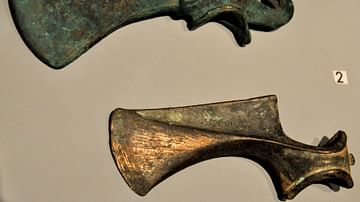
Image
Bronze Shaft-Hole Axe
These two bronze shaft-hole axes date back to the late 3rd millennium BCE, Mesopotamia, Iraq. (The Sulaimaniya Museum, Iraq).
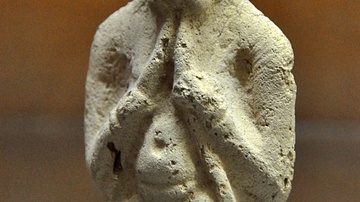
Image
Statue of Musician
This is the upper part of a terracotta statue that depicts a musician who appears to play on two flute-like instruments. The Hellenistic period, 323-30 BCE. From Mesopotamia, Iraq. (The Sulaimaniya Museum, Iraq).
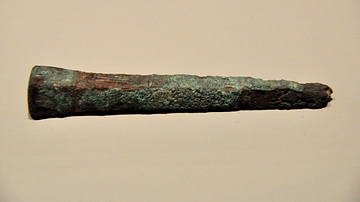
Image
Akkadian Bronze Peg with Inscriptions
This is the oldest inscribed object among the Sulaimaniya Museum's collections. The cuneiform inscriptions can be seen on the upper surface of the peg. 3rd millennium BCE, Mesopotamia, Iraq. (The Sulaimaniya Museum, Iraq).
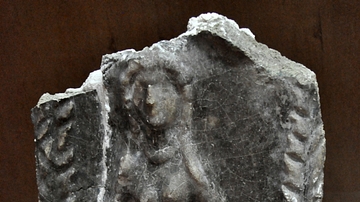
Image
Parthian Coffin Fragment
This piece was part of a Parthian coffin's cover. The depicted woman is Ishtar. Few centuries BCE, Mesopotamia, Iraq. (The Sulaimaniya Museum).
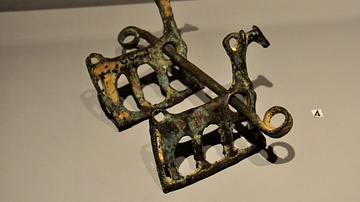
Image
Horse Bit from Lorestan
A horse bit with cheek pieces in the form of horses. From Lorestan, modern western Iran. Sassanid period, 224-651 CE. (The Sulaimaniya Museum, Iraq).
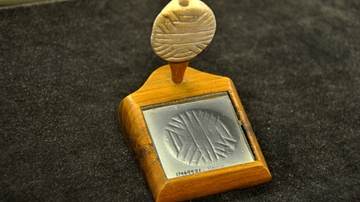
Image
Stamp from Halaf Culture
A flat clay stamp with an image of its impression. This stamp dates back to the Halaf period, 5th millennium BCE, Mesopotamia, Iraq. (The Sulaimaniya Museum, Iraq).
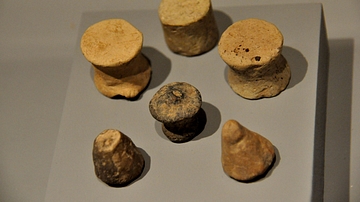
Image
Clay Tokens for Counting
These clay tokens represent the first form of counting, before the invention of writing. They date back to the Neolithic period, 8000-7000 BCE and were found in Tapa Raza, south-east of modern Sulaimaniya Governorate, Iraq. (The Sulaimaniya...
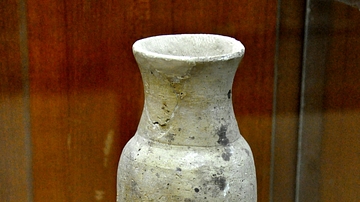
Image
A Kassite Style Jar
This pottery jar has spindle-shaped Kassite-style contours and was found within the Kassite layers at the city of Ur. Kassite period, 1531-1155 BCE, Mesopotamia, Iraq. (The Sulaimaniya Museum, Iraq).